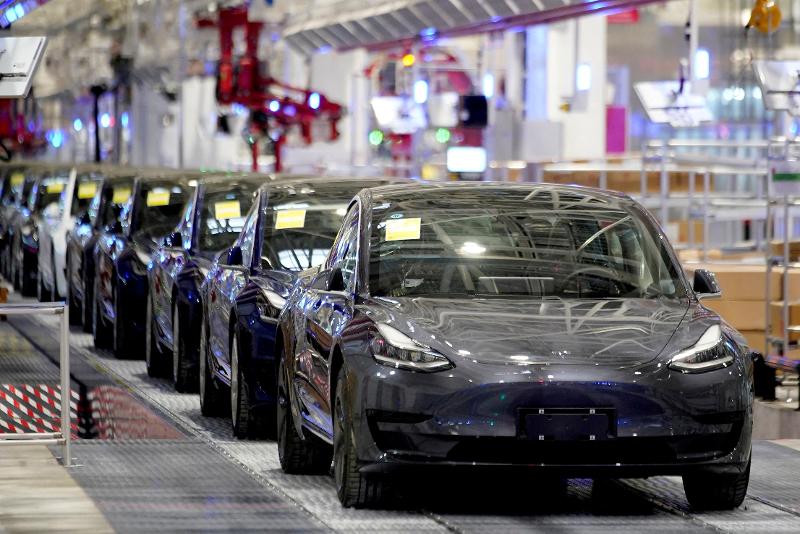High interest rates are derailing the ambitions of climate regulators and automakers to accelerate the shift to electric vehicles. Despite the strong growth in electric vehicle sales, demand is not meeting the expectations of carmakers and other invested companies. The anticipation of persistently higher interest rates has led to altered plans and cautious outlooks for 2024. This article explores the impact of high interest rates on the EV market and the adjustments being made by industry players.
Impact of High Interest Rates on EV Demand
Discover how high interest rates are affecting the demand for electric vehicles.
High interest rates have become a significant obstacle in the growth of electric vehicle demand. The majority of car buyers consider the monthly payment as a crucial factor in their purchasing decision. With interest rates remaining high, or even increasing, it becomes more challenging for people to afford electric vehicles.
This raises concerns about whether the demand for electric vehicles will meet the expectations of carmakers and other invested companies. The uncertainty in the global economy further adds to the potential decline in EV demand next year.
Partnership Scrapped: GM and Honda
Learn about the recent decision to end the $5 billion partnership between GM and Honda for developing lower-cost EVs.
General Motors and Honda recently announced the termination of their $5 billion plan to collaborate on the development of lower-cost electric vehicles. This decision comes just a year after the partnership was announced, highlighting the challenges faced by automakers in the EV space.
GM has shifted its focus from hitting specific volume targets to meeting the current demand for electric vehicles. The decision reflects the need to enhance the profitability of their EV portfolio and adapt to the changing market conditions.
Challenges for Battery Manufacturers
Explore the challenges faced by battery manufacturers due to the impact of high interest rates.
Battery manufacturers, such as South Korean company LG Energy Solution, are also feeling the effects of high interest rates. The CFO of LG Energy Solution, Lee Chang-sil, expressed concerns about lower-than-expected EV demand next year due to global economic uncertainty.
The slowing demand for electric vehicles affects the battery market, leading to a decrease in profits for companies like CATL, the world's largest battery maker for EVs. The stiff competition and weakening demand have resulted in a decline in market share for CATL in China.
Raw Material Prices and EV Market
Learn how falling raw material prices impact the electric vehicle market.
Falling raw material prices, including those used in electric vehicle batteries, have both positive and negative implications for the EV market. On one hand, lower prices can reduce production costs for automakers, making electric vehicles more affordable for consumers.
However, the decline in raw material prices also reflects the slowing demand for electric vehicles. As automakers adjust their production plans and shift focus to other vehicle types, the demand for raw materials used in EV batteries decreases.
Adjustments and Outlook for the EV Industry
Discover the adjustments being made by automakers and the cautious outlook for the electric vehicle industry.
Automakers like Volkswagen and Ford have made adjustments to their EV plans in response to the challenges posed by high interest rates and changing market conditions. Volkswagen has revised its profit margin outlook for the year, while Ford has shifted its investment focus to commercial vehicles and hybrids.
Despite the challenges, the electric vehicle market continues to grow, with significant sales increases in the United States, the European Union, and China. However, the industry remains cautious about meeting future expectations and targets due to the impact of high interest rates and economic uncertainty.
Conclusion
High interest rates are posing significant challenges to the growth of the electric vehicle market. The demand for electric vehicles is not meeting the expectations of carmakers and other invested companies, leading to adjustments in plans and cautious outlooks for the future.
Partnerships have been scrapped, battery manufacturers are facing obstacles, and raw material prices are impacting the industry. However, despite these challenges, the electric vehicle market continues to grow, with promising sales figures in key regions.
Automakers are making adjustments to their strategies and focusing on meeting current demand rather than specific volume targets. The industry remains cautious about future expectations and targets due to the impact of high interest rates and economic uncertainty.
FQA
How are high interest rates affecting the demand for electric vehicles?
High interest rates are making it more challenging for people to afford electric vehicles, as the majority of car buyers consider the monthly payment as a crucial factor in their purchasing decision.
Why did GM and Honda end their partnership for developing lower-cost EVs?
GM and Honda decided to end their partnership due to the need to enhance the profitability of their EV portfolio and adapt to the changing market conditions. GM has shifted its focus to meeting current demand rather than hitting specific volume targets.
How are battery manufacturers being impacted by high interest rates?
Battery manufacturers are facing lower-than-expected EV demand, which affects their profitability. The stiff competition and weakening demand have resulted in a decline in market share for battery makers like CATL.
What is the impact of falling raw material prices on the EV market?
Falling raw material prices have both positive and negative implications for the EV market. While lower prices can reduce production costs for automakers, the decline also reflects the slowing demand for electric vehicles.
What adjustments are being made by automakers in the EV industry?
Automakers like Volkswagen and Ford have made adjustments to their EV plans in response to high interest rates and changing market conditions. Volkswagen has revised its profit margin outlook, while Ford has shifted its investment focus to commercial vehicles and hybrids.

